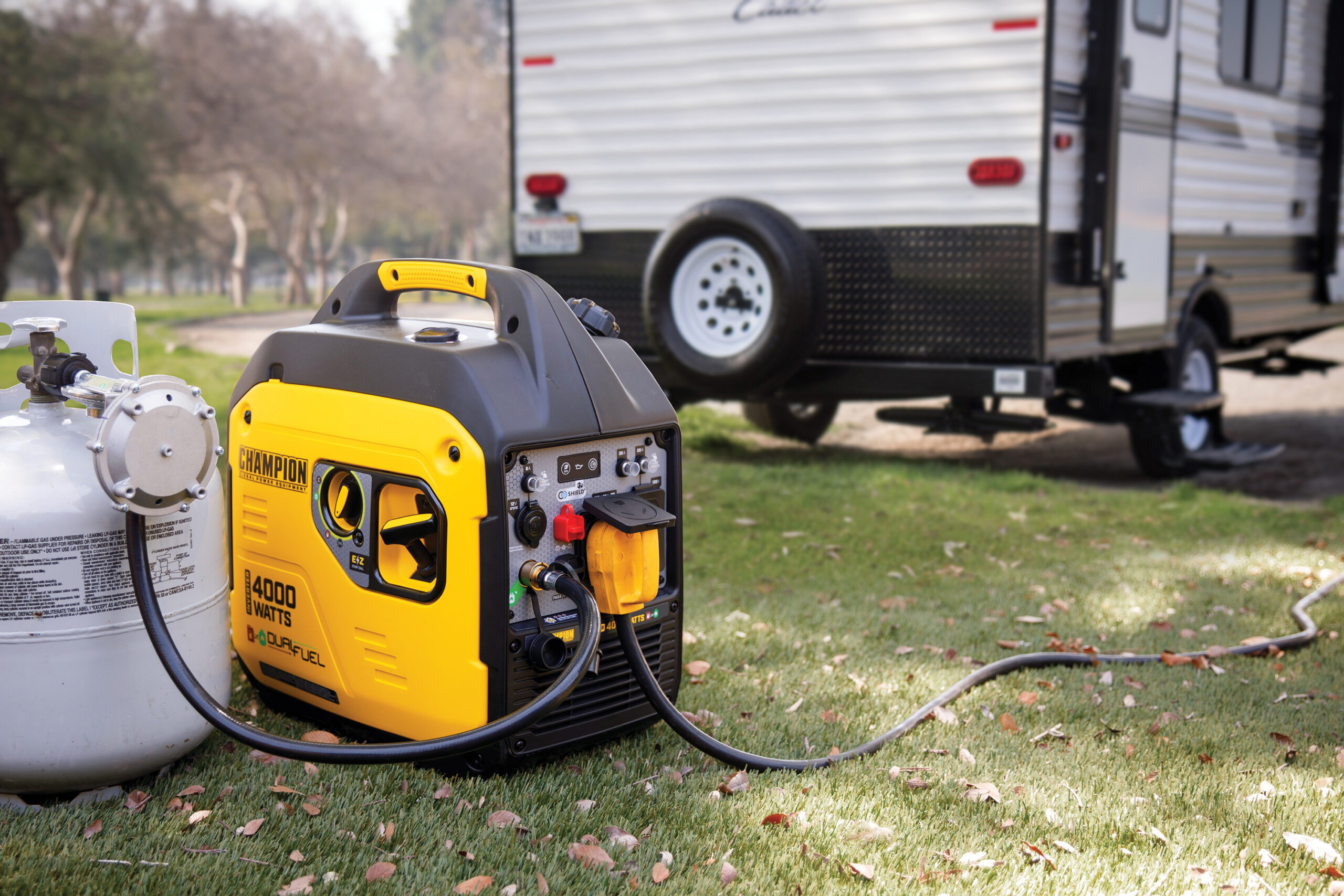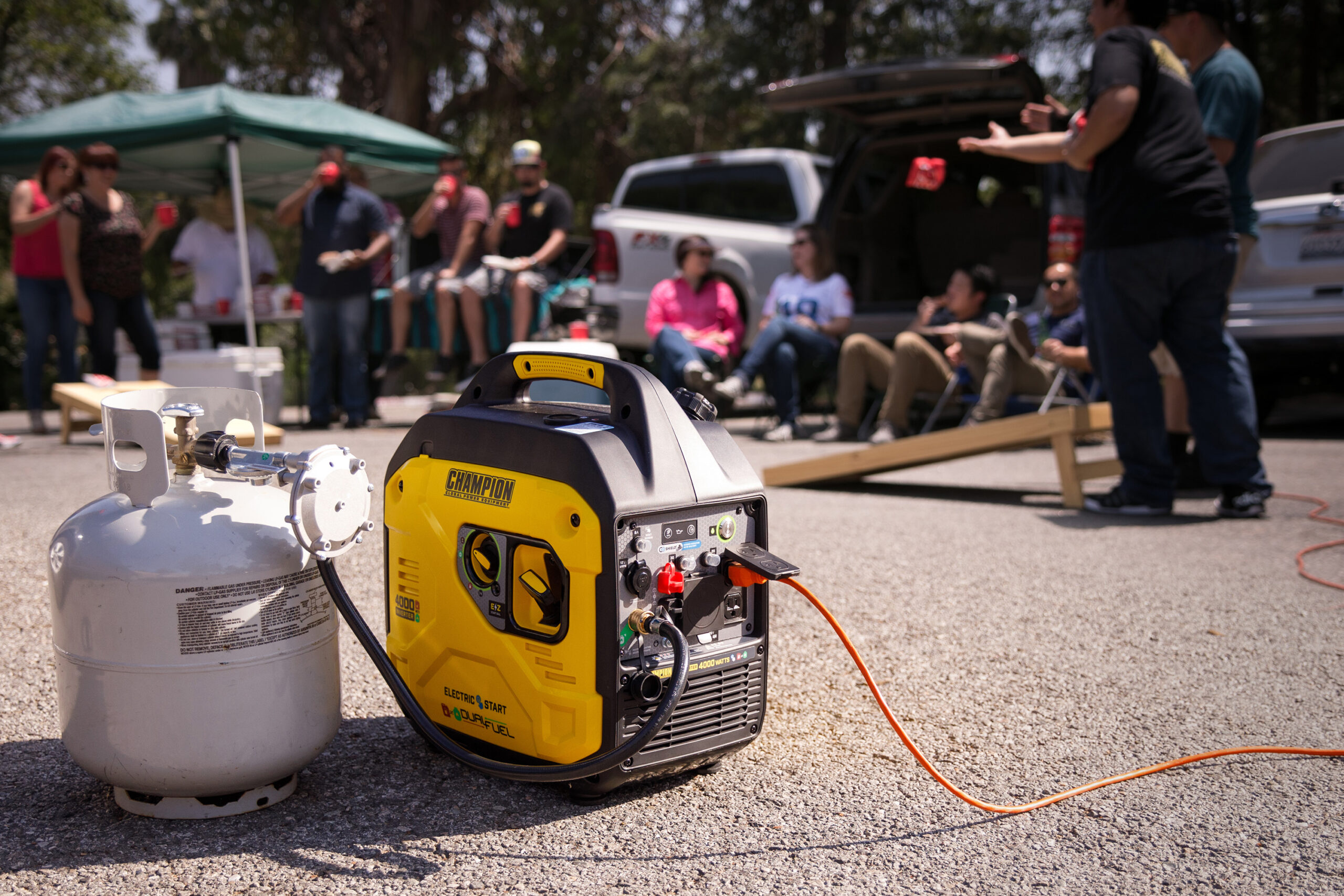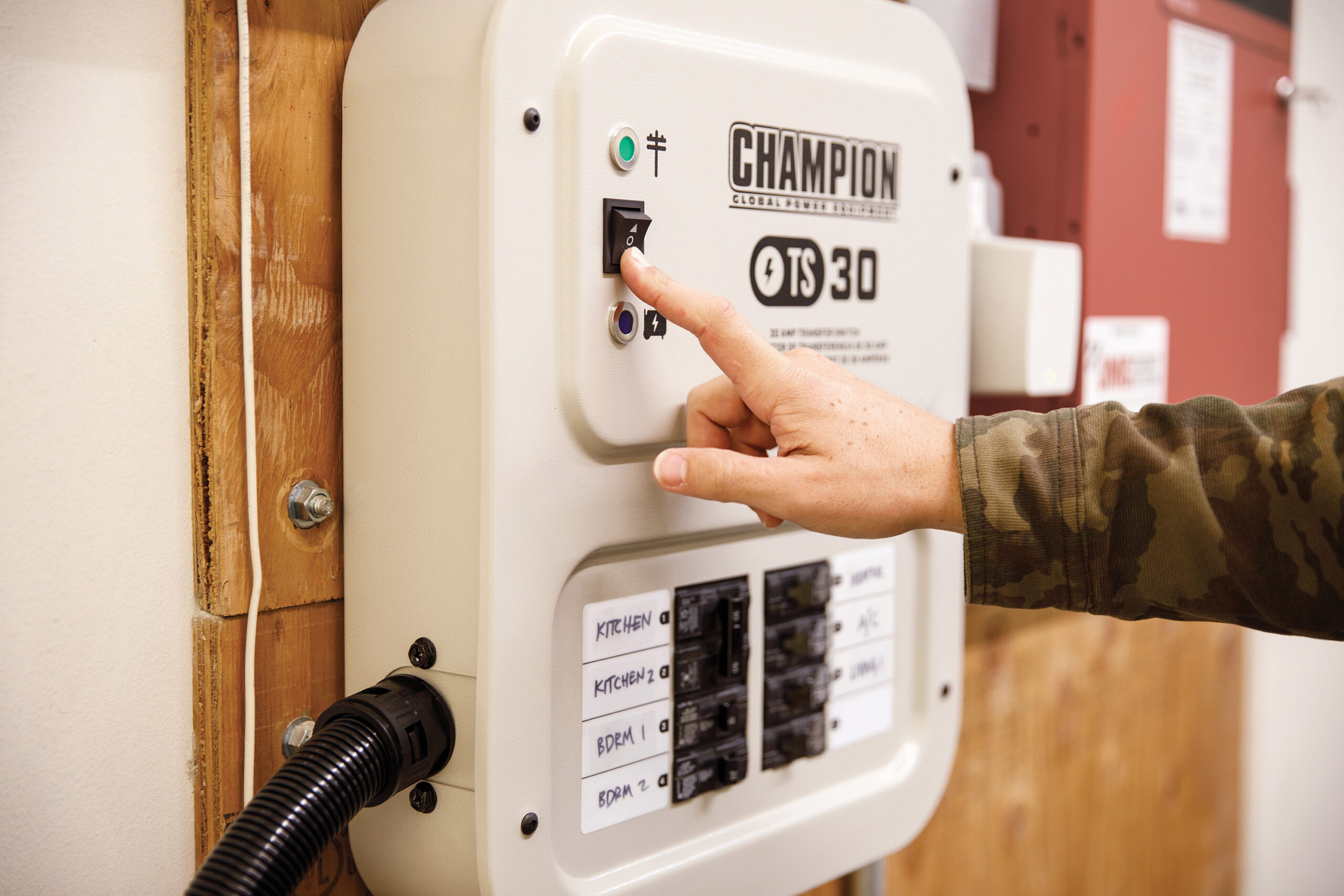What is an Inverter Generator?
When folks ask, “What is an inverter generator?” they’re often curious about how these nifty machines differ from the traditional generators they might be more familiar with. Simply put, an inverter generator is a versatile power source designed to deliver clean and stable electricity that’s perfect for sensitive electronics like laptops and smartphones. They’re smaller, lighter, and quieter than standard portable generators, and feature intelligent microprocessors that automatically adjust engine speed based on the connected electrical load. This makes them a great choice for camping, tailgating, and as a reliable backup power source at home and increases the engine’s life while providing clean power. With their compact and lightweight build, they’re easy to transport for all your mobile power needs. In this article, we’ll dive into what a power inverter generator does, explore its various uses, and offer some tips on picking the right one for your needs.

Understanding Inverter Generators
So, what does an inverter generator do differently? Unlike traditional generators, which produce raw power, inverter generators convert direct current (DC) into alternating current (AC) electricity. This process provides clean and stable energy with a total harmonic distortion (THD) of 3% or less, making it safe for sensitive devices. One of the big questions is, “What is the difference between a generator and an inverter?” The answer lies in their operational efficiency. Traditional generators run at a constant speed (3600 RPM). In contrast, inverter generators adjust their engine speed based on the power demand, improving fuel efficiency, reducing noise and extending engine life. This is why they’re favored for outdoor adventures and as a trusty backup at home.
Inverter technology is gaining popularity as more people look for greener and quieter power solutions. Champion Power Equipment’s range of inverter generators is crafted to meet diverse power needs, ensuring efficiency and reliability along the way.
How Inverter Generators Work
Let’s take a closer look at what is a power inverter generator. An inverter generator is made up of several key components: the engine, alternator, inverter, and control panel. The engine generates mechanical energy, which the alternator converts into electrical energy. However, this raw power needs refining to be safe for sensitive electronics. That’s where the inverter comes in. It performs a dual conversion: transforming raw AC power to DC, then back to high-quality AC power with consistent voltage and frequency. This conversion is what a power inverter generator excels at, ensuring clean and safe electricity for your delicate devices, which is the quality of power that is given through your wall outlets.
The inverter continuously monitors the load and adjusts engine speed, optimizing performance and fuel use. Understanding what does an inverter generator do helps us appreciate the tech behind Champion Power Equipment’s innovative products, designed to meet a variety of power requirements.
Applications of Inverter Generators
Inverter generators are go-to gadgets in both homes and businesses. Homeowners often turn to them during outages to keep the essentials running, like fridges and heating systems, and due to their being quieter than standard portable generators. On job sites, they provide reliable power for tools, making them a favorite for contractors. For the outdoor enthusiasts, their portability and quiet operation make them perfect for camping and tailgating. You can power your lights, small appliances, and entertainment gear without disturbing the peace. Plus, their lightweight design means you can easily take them wherever you need dependable power.
Inverter generators are also handy during outages, producing clean, stable energy for sensitive electronics like computers and TVs. If you live in an area with severe weather or frequent power disruptions, an inverter generator offers peace of mind, keeping your life moving smoothly even when the grid fails.
For an added bonus, many Champion Power Equipment inverters can be paralleled* with other inverters (of equal or different wattage) or with power stations by means of a parallel kit. This not only increases your overall power output but can also save you from having to upgrade to a larger unit just to power essentials.
*Only inverters that feature ParaLINK technology can be paired.
Choosing the Right Inverter Generator
Picking the right inverter generator involves a few key considerations. First, figure out the wattage you need. Inverter generators come in different wattages, so it’s important to know the total power requirements of your devices. Make a list of your appliances and their wattage to help you choose. Use our wattage reference chart as a guide for appliance wattage estimates.
Portability is another factor; for outdoor use, look for models that are light and easy to transport, with features like handles or wheels. Don’t forget about noise levels either. While generally quieter than traditional models, it’s a good idea to check decibel ratings to ensure they fit your needs.
When deciding on an inverter generator, consider wattage, portability, and noise level. Choosing a model with slightly higher wattage than you think you’ll need provides a helpful buffer for unexpected power surges. If you ever want more power down the road, explore Champion Power Equipment’s Parallel Kit Selector tool. It helps you find the right kit to connect two compatible inverters for extra output. Champion’s lineup of inverter generators is built to meet a wide range of power demands while keeping things portable, efficient, and quiet.
Frequently Asked Questions
Common misconceptions about inverter generators: There’s a common misconception that inverter generators lack power compared to traditional models. In reality, they can deliver equivalent power more efficiently and quietly. Another misunderstanding is that they’re only good for small devices. While they’re great for sensitive electronics, many models, including those from Champion Power Equipment, can handle larger appliances too.
Maintenance tips for longevity: Always refer to your model’s owner’s manual for specific maintenance tips. Keeping your inverter generator in tip-top shape requires regular maintenance. Check and change the oil and keep the air filter clean for efficient airflow, and inspect the spark plug regularly. Running your generator at least once a month for about 15 minutes, even when not in use, helps keep components lubricated and ready to go.
Safety considerations when using inverter generators: Safety first! Use your generator outdoors in a well-ventilated area to avoid carbon monoxide buildup. Protect it from moisture and the elements, and use extension cords rated for the power output. Avoid overloading the generator to prevent hazards and damage to your generator. Following these guidelines will ensure a safe and efficient experience with your inverter generator.
Customer Support
Champion’s support team has you covered, whether you’d like help by phone or live chat. Want to troubleshoot on your own? Check out our Help Center for step-by-step guides and self-service tools, or head to our YouTube channel for tutorials and troubleshooting videos to keep your equipment running smoothly.

